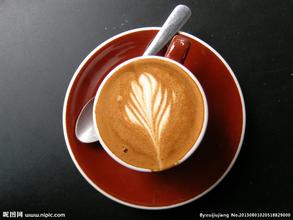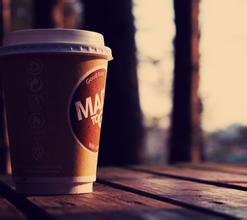Why choose Chiang Ching-kuo's former residence to open a coffee shop?
A few days ago, a public announcement appeared on the official website of the Management Committee of the West Lake Scenic spot in Hangzhou City, Zhejiang Province, causing a heated discussion in the society. The focus of the dispute is that the site of the new project of the popular Cafe mentioned in the announcement is actually a cultural relic protection site in Hangzhou-Jiang Jingguo's old home. (Guangming Daily, February 2)

Whether the former residence of a celebrity is suitable for commercial use or not, there are different voices. But there is no doubt that as long as the status of Chiang Ching-kuo's former residence as a cultural relic protection unit remains unchanged, "protection" should always be its key word.
The regulations on the Management of Business activities of State-owned Cultural relics Protection Units (for trial implementation) issued by the State Administration of Cultural relics in 2011 stipulates that business activities of state-owned cultural relics protection units shall not deviate from the attribute of public culture; shall not lease, contract, transfer or mortgage cultural relics protection units to carry out commercial development for the purpose of profit.
In real life, most of the former homes of celebrities who are included in cultural relics protection units are low-grade cultural relics at the city and county level. there are complex ownership of cultural relics and less protection funds, so it is inevitable to protect them ineffectively or divert them for other purposes. To put it bluntly, these former homes of celebrities with the plaque of "cultural security units" are in need of repair and protection because of their age, but lack of funds, and their fate is often either abandoned or "adopted" by private capital.
"Adoption" cultural security units need a lot of real money and silver input, who is willing to do things that only input but no output? Therefore, after the private capital "adopts" the cultural security unit, it is bound to be developed and utilized. As a matter of fact, cultural relics work implements the policy of giving priority to protection, rescue first, rational utilization, and strengthening management. As long as the development and utilization is reasonable, cultural protection units will not be damaged, but will glow with a "second spring." However, in real life, cultural security units are overexploited and utilized everywhere.
Every former residence of celebrities has many stories and legends, all bearing a period of history. The former residence of celebrities has a high value that can not be measured by money, which needs and deserves the awe and protection of later generations. The basis and premise of the utilization of cultural relic buildings should be to better protect and display the value of cultural heritage.
The most prominent feature of cultural relic architecture is that it is non-renewable, even if it is repaired as old by modern technology, its cultural connotation and heritage will be greatly damaged. There is no doubt that the former residence of Chiang Ching-kuo has been transformed into a cafe, and its original pattern is bound to be destroyed in the process of renovation and transformation, which will be a devastating blow, a destruction that kills the goose that lays the golden eggs, and runs counter to the purpose of protection.
As the citizens say, there are no less than one or two cafes by the West Lake, and we should not lose any of the former homes of celebrities-- cafes can be opened anywhere, but there is only one old residence of Chiang Ching-kuo in Hangzhou. Once the cultural relic building is destroyed, no matter how much money is spent, it cannot be restored. They really can not afford to hurt. I hope that local governments and relevant departments can learn a lesson, be willing to spend money to protect cultural relics and buildings, and give an account to history and future generations.
Important Notice :
前街咖啡 FrontStreet Coffee has moved to new addredd:
FrontStreet Coffee Address: 315,Donghua East Road,GuangZhou
Tel:020 38364473
- Prev

Koreans prefer coffee to kimchi or because it tastes like soup
Pedestrians with a cup of coffee are often seen on the streets of Seoul. According to statistics, each person in South Korea drinks an average of two cups of coffee a day, and Koreans drink coffee more often than they eat kimchi. According to a recent report released by South Korea's Ministry of Agriculture, Forestry, Animal products and Food Circulation, the single type of food that Koreans consume most frequently is coffee, which is consumed 12.3 times a week.
- Next

The battle between coffee merchants in Shanghai is becoming more and more fierce. Kashijia competes with Starbucks.
In Shanghai today, the smell of coffee is floating in the air. This international metropolis, with a resident population of 25 million, not only has more than 4000 cafes, large and small, but more importantly, chain fast food restaurants and convenience stores have also fully joined the ranks of freshly ground coffee this winter, striving to get a share of the growing coffee consumption market. Behind the competitive layout is the rapid expansion of China's coffee market.
Related
- Unexpected! Ruixing Telunsu lattes use a smoothie machine to foam milk?!
- % Arabia's first store in Henan opens into the village?! Netizen: Thought it was P's
- Does an authentic standard mocha coffee recipe use chocolate sauce or powder? Mocha Latte/Dirty Coffee/Salty Mocha Coffee Recipe Share!
- What is the difference between Vietnam egg coffee and Norway egg coffee? Hand-brewed single product coffee filter paper filter cloth filter flat solution!
- What is the difference between sun-cured and honey-treated coffee? What are the differences in the flavor characteristics of sun-honey coffee?
- How to make Italian latte! How much milk does a standard latte use/what should the ratio of coffee to milk be?
- How to make butter American/butter latte/butter Dirty coffee? Is hand-brewed coffee good with butter?
- Is Dirty the cold version of Australian White? What is the difference between dirty coffee/decent coffee and Australian white espresso?
- Relationship between brewing time and coffee extraction parameters How to make the brewing time fall to 2 minutes?
- Got entangled?! Lucky opens a new store, Mixue Ice City, and pursues it as a neighbor!

